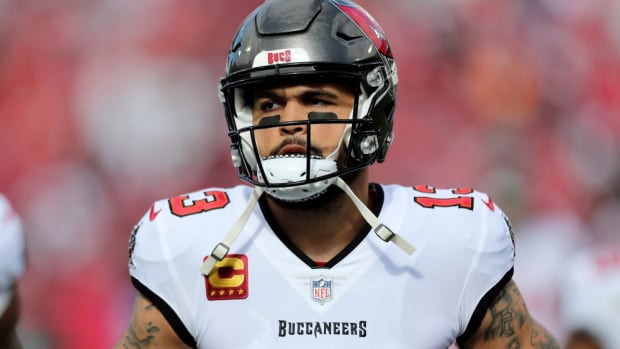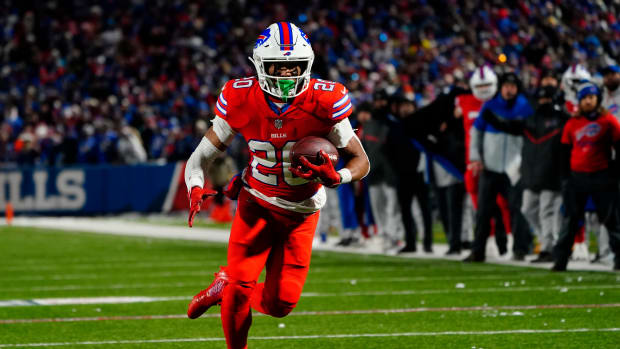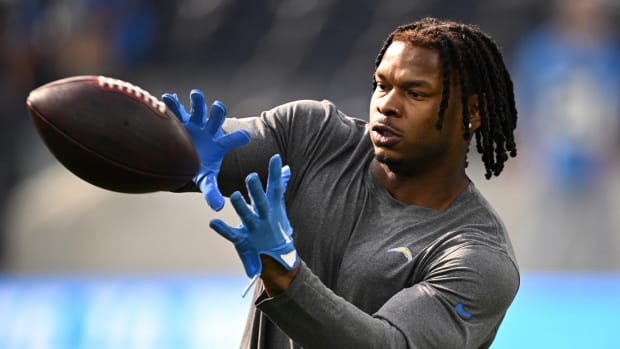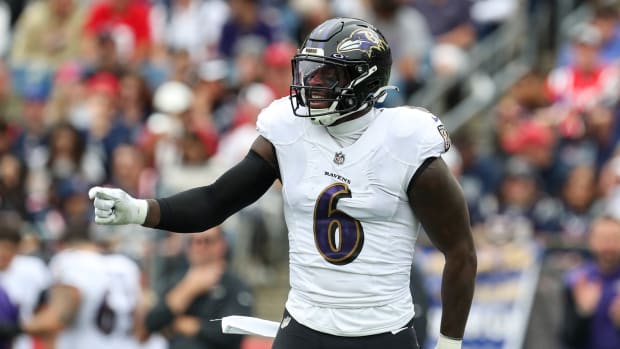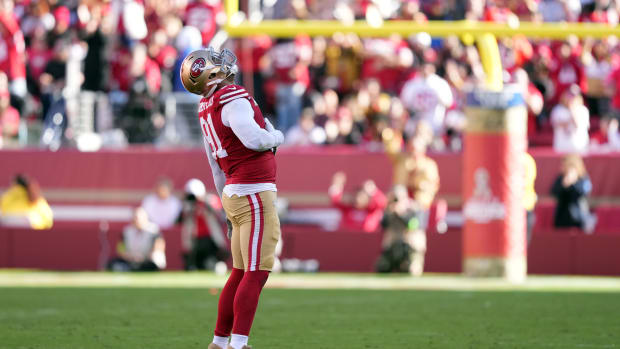Football the Way It Ought To Be: Flag-Free
Penalties were down significantly compared to recent wild-card weekends, which meant pass-defenders had a chance to do their jobs. (Andrew Hancock for Sports Illustrated)
Now that’s more like it.
On the opening weekend of the playoffs, NFL officials put away their penalty flags, swallowed their whistles and even Ed Hochuli kept his verbiage to a bare minimum. (Though that may be because he couldn’t speak through his Hannibal Lecter mask in the Green Bay cold.)
The best teams and players got to determine games, without the referees butting into the outcomes as they had all season. It wasn’t an illusion, it really happened: After an average of 12.3 penalties for 105.6 yards during the regular season, officials called an average of 7.8 penalties for 63.3 yards per game on Wild-Card weekend. That’s a significant drop, and it’s down from the playoffs in the recent past as well. The previous two postseasons averaged 9.8 penalties per game (for 74.5 yards in ’13, 93.3 in ’12) on wild-card weekend. In 2010 we had 8.5 penalties for 57.0 yards.
Sean Payton and his coaching brethren had little to complain about, as officials mostly kept out of the way. (Al Tielemans/Sports Illustrated)
Yes, there were a few blatantly missed calls—notably 49ers receiver Michael Crabtree getting assaulted in the end zone by Davon House with 2:25 left in the first quarter, and Packers center Evan Dietrich-Smith tackling Ray McDonald on Aaron Rodgers’ miraculous 4th-and-2 conversion, and a few more offensive holding penalties could have been mixed in—but the relatively zebra-free football was glorious. While there were a few defensive holding penalties, there was just one pass interference penalty, with its ludicrous spot foul punishment. This was real football again, like when most of us were kids. You know, when the teams that could play defense (not the Chiefs and Colts) actually had a chance to do so. What a novel concept.
(Let’s all take a moment to be thankful that Bill Polian is at ESPN instead of in charge of the Colts. We could have been facing an emergency meeting of the competition committee before their game against the Patriots. Thanks to his whining after New England roughed up his Colts in the ’03 AFC Championship Game, Polian used his influence to get pass interference and defensive holding called more strictly. That led to penalties increasing on wild-card weekend from 8.3 per game in ’03 to 13.5 in ’04. Thanks for that.)
But here’s my question after a weekend in which I kept most of my hair instead of pulling it out over inconsistent officiating: Why can’t it always be like this? Why can’t the regular season be officiated the same way as the postseason?
When flags were called for, as with Cory White’s mugging of DeSean Jackson, the yellow flew. (Damian Strohmeyer/SI)
I want to see a world in which downfield contact is permitted against receivers unless the receiver is in the act of actually catching the ball. Why is it that receivers are the only players on the field who can’t be touched while performing their duty? The NFL even permits quarterbacks to be whacked while they’re throwing the ball—albeit apparently in a 3-inch-by-3-inch zone. Actually, forget I mentioned that. I don’t want to give the owners any more ideas about making quarterbacks into bubble boys.
We all know why the regular season-to-postseason disparity will likely continue: fantasy football and TV ratings. NFL owners think fans love points and gaudy yardage numbers because it makes their fantasy scores light up like a pinball machine. While it’s true that most of us are big, dumb animals easily distracted by bright lights and flashy numbers, fantasy football and the NFL in general would be just as popular if the playing field were evened up between the offense and defense. We come to worship at the altar of football, and all that comes with it: the camaraderie, the beer drinking, the trash talking. We’ve always been here. People will watch whether there are 89 points on the scoreboard or 29.
It’s a physical game, and letting the teams play won‘t detract from fans’ enjoyment. (Andy Lyons/Getty Images)
Peyton Manning and his Broncos are probably a little uptight right now about how their precision passing game will function in a postseason in which the defense can bump them off their routes with impunity. Patriots coach Bill Belichick, who won his three Super Bowl titles on the back of a tough, physical defense and not on Tom Brady averaging 300 yards per game, was probably watching this weekend saying, “Come to Papa,” and texting cornerback Aqib Talib to prepare to use the bear hug technique for the rest of the playoffs.
Guess what? That’s football, the way it has always been played. It was nice to see it back. Let’s hope it wasn’t just a fleeting glance.






































